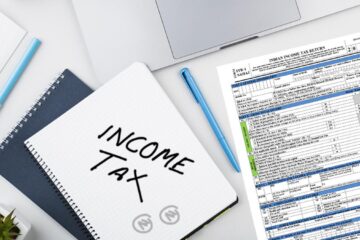Introduction
Filing an Income Tax Return (ITR) can often be daunting, especially for salaried individuals. However, with the right guidance and knowledge, the process is simple. At Worktorule Consultants LLP, we understand the complexities involved and aim to make the process easier for you. In this comprehensive guide, we will explore every aspect of the ITR for individual salaried payers, providing expert opinion and practical advice to ensure a smooth filing experience.
Also Read; Income Tax Return- What Is and Who Needs to File An ITR?
Understanding ITR for individual salaried employees
Knowing basic tax documents is important for every taxpayer. Here we break down the essentials:
What is an Income Tax Return?
An Income Tax Return (ITR) is a form for declaring income and taxes paid to the government for a particular financial year.
Why is ITR Filing important?
Filing of ITR is not only a legal requirement but also necessary to avail various financial benefits and avoid penalties.
Various ITR forms for salaried recipients
Salaried individuals usually use different ITR forms depending on source of income and other factors. It is important to understand these documents
ITR-1
Especially for individuals who earn income from salary, single house property, interest income and other sources.
ITR-2
It applies to persons earning income from sources other than profit and gain from employment or employment and HUF (Hindu Undivided Family).
ITR-3
In the case of individuals and HUFs having income from profits and gains from a business or profession.
Basic documents required
Gathering the required documents is the first step to accurately file your ITR:
Form 16 issued by the employer
Banking information
Proof of investment (such as LIC, PPF etc.).
Rent Receipts (if applicable).
Aadhaar card, PAN card and so on.
Guidelines for ITR Filing Process
Filing your ITR can be simplified in a few basic steps:
They register on Income Tax Portal
Before you begin, make sure you are registered with the Income Tax Department e-filing portal.
Selecting Correct ITR Form
Choose the right ITR form based on your source of income and financial status.
Compilation of personal information
Enter your personal details like name, address and PAN.
Income Statement
Provide details of your sources of income such as salary, household assets, Investments.
Deduction claim
Be sure to claim deductions under sections like 80C and 80D to reduce the taxable income.
Honesty and explanation
Review your details, verify the details and submit the form online.
FAQs (frequently asked questions).
1. What is the last date for filing ITR for salaried persons?
Generally, it is July 31 of the assessment year, although that can vary.
2. Can I file my ITR without Form 16?
While Form 16 simplifies the process, you can file other income-related documents for your ITR.
3. Is it compulsory to e-file ITR?
E-filing is mandatory for individuals who earn more than a certain threshold. However, others may choose between e-filing and physical filing.
4. What happens if I miss the deadline for filing ITR?
Missing the deadline attracts penalties and interest on the unpaid tax amount.
5. Can I amend my ITR after submission?
Yes, if you have made any mistakes or missing details, you can amend your ITR within the stipulated time.
6. Is professional assistance required to file ITR?
While not mandatory, seeking professional help can ensure accuracy and compliance with tax laws.
7. What are the consequences of wrong information in ITR?
Providing incorrect information in your ITR can have penal and legal ramifications. It is necessary to ensure accuracy.
8. Can I file ITR without Aadhaar card?
While Aadhaar card is preferred for e-verification, you can submit your ITR through other authentication methods.
9. How can I check the status of my submitted ITR?
You can check the status of your submitted ITR online through the Income Tax Department portal using your sanction number.
10. Are there tax savings options for individual salaried employees?
Yes, individual salaried employees can take advantage of tax-saving strategies such as investing in tax plans and insurance.
11. Can I file ITR for previous years if I missed the deadline?
Yes, you can file ITR for previous years within the stipulated time, though you may attract penalty.
12. How can I carry forward the loss in ITR?
Losses in a particular financial year can be carried forward to future years to offset future income.
13. What documents should I keep after filing ITR?
It is important to keep documents such as receipts, proof of deposits, Form 16 and others for future reference and accounting purposes.
14. Can I file ITR for my spouse or family members?
Yes, you can file an ITR for your spouse or family members if you are authorized to do so.
15. Is there any procedure for rectification of errors in the submitted ITR?
Yes, you can rectify the errors in your submitted ITR by filing a revised return within the specified time.
16. How can I check the tax refund?
You can check your tax refund status online using your PAN through the Income Tax Department portal.
17. Are there tax breaks available for individual salaried employees?
Yes, salaried individuals can get tax exemptions on various allowances like HRA, LTA and medical coverage.
18. Can I file ITR if I have multiple sources of income?
Yes, you can file an ITR if you have multiple sources of income, but you have to declare all your sources of income exactly.
19. What should I do if I get a notice from the Income Tax Department about the ITR I have filed?
It is important to provide the necessary documents or information requested by the Tax Office in order to respond promptly.
20. How do I download my Form 26AS for filing ITR?
You can download Form 26AS using your PAN from the Income Tax Department portal to verify your TDS details before submitting your ITR.


